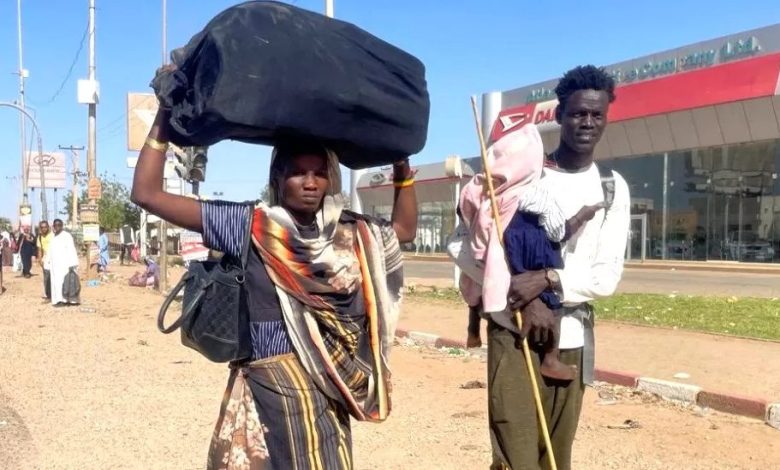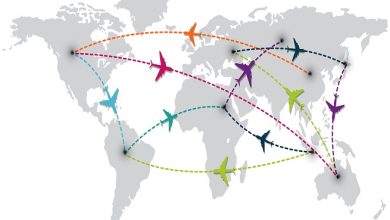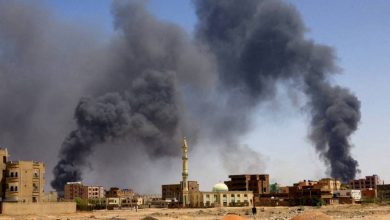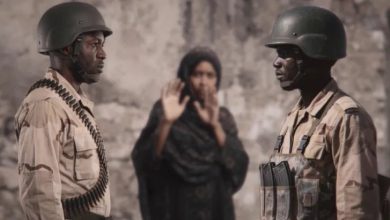Reports
Paths of Despair Again.. Mim’s family went through a difficult phase escaping from Sudan to Egypt in search of treatment and safety

Sudan Events – Agencies
The family faced numerous dangers, from phone seizures to threats of gunfire and harsh treatment in detention camps. Mim’s family consists of four children, her siblings’ children, as well as her ill parents. The four children range in age from two to eleven years, and her mother suffers from diabetes and a heart valve prolapse, while her father suffers from Malta fever and psychological disorders.
“The illness of my parents was the main reason for fleeing Sudan in search of treatment,” she explains. The family endured a lack of food and water and poor treatment in the detention camps at the Sudan-Egypt border, where hope for a better life turned into an ongoing nightmare of suffering and deprivation.
Mim passed through three camps in Egypt and tried to document what happened with her family at the first camp using her phone, but she abandoned this effort after witnessing another Sudanese woman being caught filming inside the camp. All phones were confiscated, and arbitrary measures were taken, including searching personal belongings and deleting photos from phones.
From Atbara to the crushers in Atbara, the family’s point of departure into paths of despair, a Sudanese driver offered them a trip costing 300,000 Sudanese pounds for passengers at the front of the vehicle and 250,000 pounds for those at the back. They decided to wait until after Eid al-Adha when prices might drop to 250,000 and 170,000 Sudanese pounds respectively, especially since all expenses included the journey and accommodation upon arrival.
The journey began, and the vehicle headed towards the crushers near Aswan, where they came under gunfire from the Egyptian army, instilling fear in the passengers’ hearts. Mim experienced terrifying moments, feeling a bullet pass close to her ear. She was sitting on a gasoline can that opened during the chase, making her fear an explosion. During this time, Mim saw another car carrying a family; the Egyptian army shot its tires, and the driver tried to escape with the iron inner tire. Mim did not know what happened to that car, but their driver managed to escape and said they were fleeing to avoid having their vehicles burned and facing a 15-year prison sentence.
Mim and her exhausted family spent the night in the open, fortunate that their driver did not get lost. They were supposed to meet the driver’s cousin to continue the journey, but he did not show up. Instead, an Egyptian microbus driver appeared, offering to take them to Aswan. They reluctantly agreed due to exhaustion. Mim says, “The Egyptian driver pretended to have lost his way until he delivered us to the nearest camp.”
They were held inside a vehicle and handed over to a border guard battalion. At the first border guard camp, their suffering began anew, with slightly open windows. They were given water and biscuits, and then, with another man, transported by the same microbus. By around 4 PM, they arrived at the second camp, where they were told that the mosque was the only available place to sleep, but it was filled with venomous insects. They spent two hours being attacked by mosquitoes before being moved to a large animal transport vehicle without being given breakfast. The next day, around noon, they were moved to another camp where they found a vendor selling sandwiches and snacks at exorbitant prices compared to their financial situation. They had to buy food and water with large amounts of money amidst the children’s crying for food. A sandwich inside the camp costs 15 Egyptian pounds, a bag of chips 6 pounds, and a small bottle of water 15 pounds. Their daily meal consisted of a small piece of cheese and one Egyptian loaf of bread.
Mim says, “It seemed as if they were taking pleasure in the suffering of Sudanese families, and some appeared to be influenced by anti-Sudanese refugee social media campaigns.” She recounts that one of them prevented her father from entering the hall after half an hour of the call to prayer and stopped him from using the bathroom, worsening his psychological condition. Her mother intervened to speak with them but fainted due to low blood sugar and a heart attack, and was transferred to a hospital in Aswan. “The doors remain open, and the officers enter the detention hall without prior notice. There was no other meal after dinner,” says Mim. However, after protests, they reached Abu Simbel, where they were asked to pay 200 Egyptian pounds per person, forcing Mim to pay 1,200 Egyptian pounds for her entire family, equivalent to 48,000 Sudanese pounds.
Mim confirms that the number of detainees is very large, with no direct supervision, leaving families at the mercy of the officers. They were transported with their family to Halfa, but she still wonders about the road conditions and hopes for a crossing. Her cousin’s daughter had a horrific traffic accident during the smuggling journey, resulting in severe injuries requiring more than four surgeries. Her son also has a broken hand and is confined to a small room in the intensive care unit in Aswan.
To evacuate the injured, the sister of the injured, who had previously gone to Cairo, went to the Refugee Commission in Cairo and then to the Sudanese embassy, but to no avail. The commission could not provide any notable protection; instead, it scheduled a distant appointment to complete registration procedures. One of the injured family’s relatives, “Ater,” reported that the Sudanese embassy, represented by the ambassador and his deputy, did not show any concern despite repeated requests. The family remains engulfed in this issue, fully devoted to efforts to free their detained members from this predicament.
SOURCE ATAR MAGAZINE



